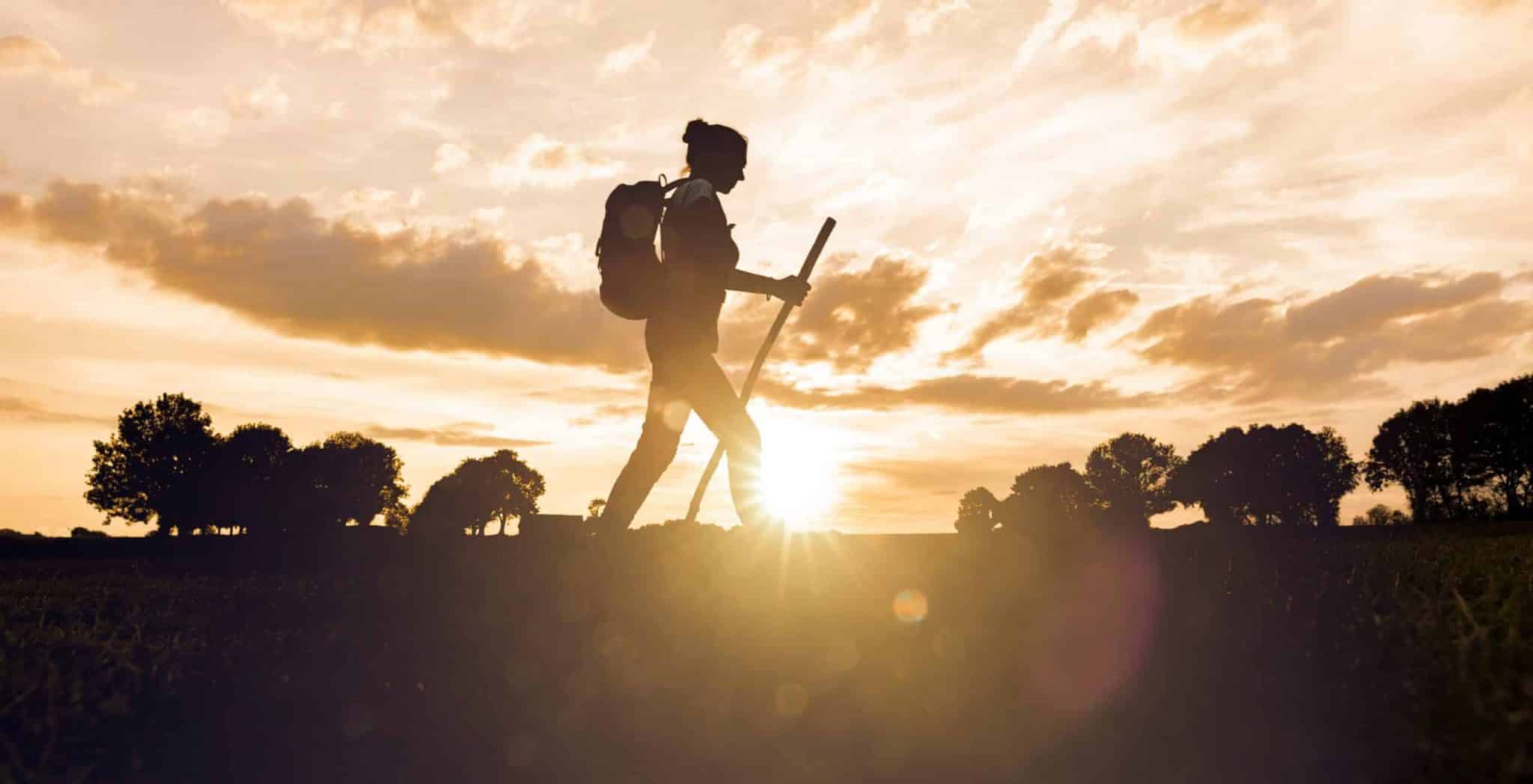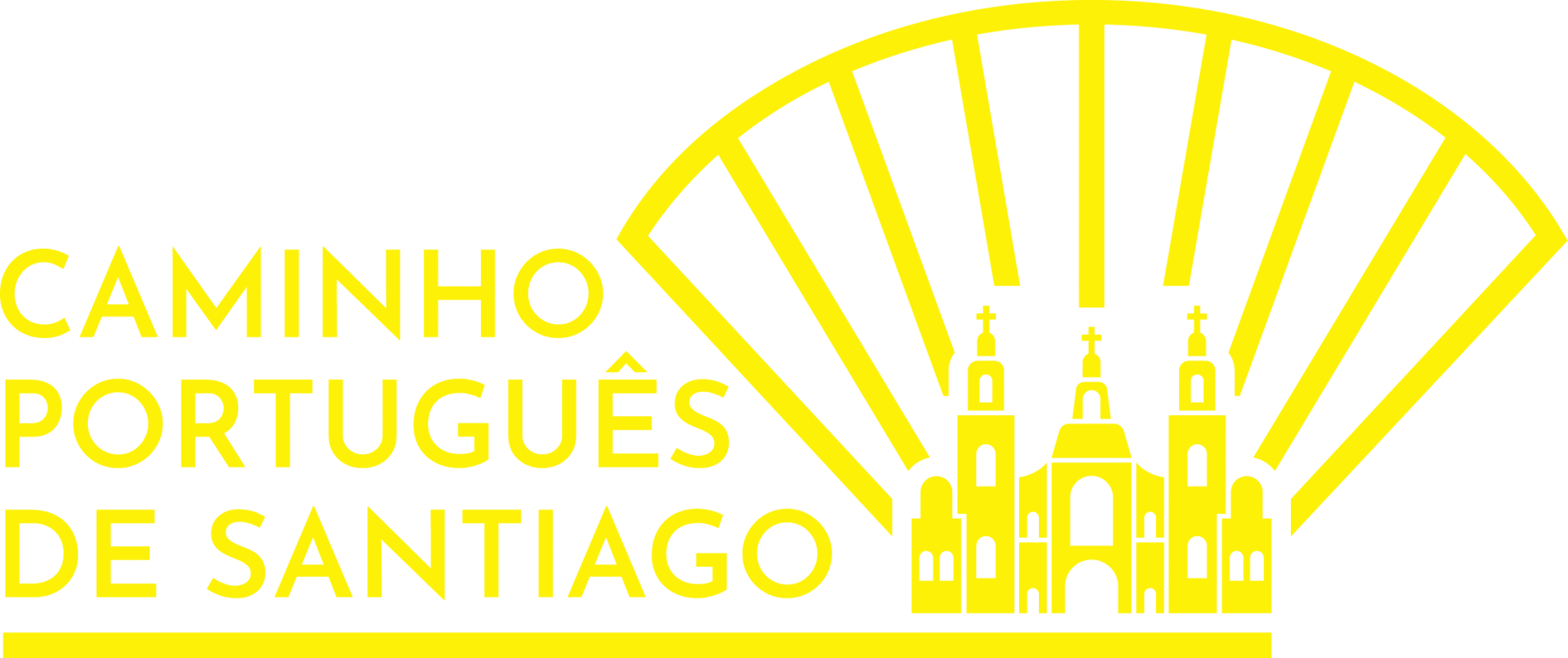5 benefits of walking for those who want to do the Camino de Santiago.

All exercise is good for your health. However, walking is one of the simplest to begin with. All you have to do is leave the house and walk to the destination that always awaits you. In fact, it's such a beneficial physical activity for the body and mind that ancient philosophers recommend it for those who want to come up with innovative ideas. Read our article to get inspired to start your journey.
The benefits of walking are already well known. In addition to the usual reports suggesting that an hour's walking improves cardiovascular health, it is also fundamental for mental well-being and clarity of thought.
For example, the philosopher Friedrich Nietzsche said in one of his books that "all great ideas are born from a walk". You're not alone when it comes to this idea, but we'll explain it in detail below.
In this article, we're going to talk about the benefits of walking, both physical and psychological, to inspire you to get out of the house and walk the planet.

1) Improve your creativity.
Following the hypothesis of the writer we spoke about earlier, there are studies that prove the link between walking and solving problems, rather than waiting for an answer while sitting at a desk.
This is because our brain is in a constant state of action. Even when we're relaxing. That's why so many creative people have rituals that force them out of their work environment and into nature.
The man who revolutionized communication and cell phones as we know them, Steve Jobs, believed that walking was the best way to come up with new ideas. That's why, today, Apple's headquarters has spaces dedicated to this activity.
To explain this phenomenon, Monty Python's tallest man, John Cleese, wrote a book in which he explains this process in detail. Here, he says that when he started putting his plays down on paper at university, he was never happy with the first result if he managed to finish it. However, after a moment's rest - such as going for a walk - when he returned to his postponed creative activity, he would turn his drafts into pieces of art.
So what could be holding you back from coming up with great ideas could be a lack of fresh air and exercise. Start walking and transform your productivity.

2) It gives you more energy.
If you find yourself yawning in the middle of the day, a short 15-minute walk could be just what you need to get your body moving. It even works better than the usual coffee on arrival at the office. It may seem strange, since exercise is supposed to tire you out. However, as studies have shown, physical activity leads to:
- Increased oxygen flow in the blood, making you more alert.
- By raising your cardiovascular level, your body knows it's ready to perform.
- Increased production of hormones responsible for energy, such as cortisol, epinephrine and norepinephrine.
In this way, a simple walk can be the difference between a productive day and a lazy afternoon. Get moving!
3) It also improves your mental health.
Exercise is the way for the body and mind to regulate themselves. That's why the benefits of walking also extend to your mental health. According to several research studies, just a few quick steps can improve your mood, reduce the risk of depression and boost your well-being.
This is because, as we saw above, when you exercise, your body releases some important hormones that fight stress and anxiety. For example, serotonin, endorphin and dopamine, which are related to psychological vitality.
Even better if you walk outside the "city". By getting away from the hustle and bustle, you allow your brain to rest more fully. Without the usual distractions, noise and even minimal cell phone reception, when you return to the normal world, you'll feel that your concentration has returned to normal and you'll have a sense of peace.
4) One of the least talked about benefits of walking is that you can explore areas that you might never have visited.
By leaving your area, you'll open doors to places you never imagined. In fact, anyone who has walked the Camino de Santiago knows that it's the wonderful landscapes that make you dream of the ancient trail.
However, close to home, you may also have forests, woods and parks to explore. Just do your research. However, if you don't feel comfortable going on these adventures without company, know that you can join local groups.
We're talking about walking groups that are becoming increasingly popular. In Sintra, for example, the Monte da Lua Walkers go out every week to explore the secrets of the municipality, always with someone in charge of the crossing.
In Évora, too, there is a group that has 10 years' experience and often has activities related to what is happening culturally in the district and in the city.
So we leave you with the challenge. Why don't you start your own group to improve your physical skills and eventually do the Portuguese Camino de Santiago? You can meet other pilgrims and people who want to do this journey in our Facebook group.
5) It's a low-impact exercise, unlike running.
Another benefit of walking is that there is less chance of injury. For example, unlike running, walking is considered a low-impact sport. In other words, there is less pressure on your body. When you touch the ground, your feet do so with a lower impact, which avoids situations such as back pain.
However, even when walking, you have to pay close attention to the road and other situations.
Tips for walking safely.
- Ride in areas that are good for pedestrians, avoiding roads or streets with no sidewalks and poor visibility.
- If you venture into forest or mountainous areas, always go with company and someone who knows the route.
- Whether it's night or dawn, never forget your reflective vest so that cars can see you.
- Invest in good shoes to avoid injuries.
- Maintains constant hydration during and after the walk.
- Always use plenty of sunscreen so you don't get sunburned, even on foggy days.
Do the benefits of walking stop there?
Of course not. Walking helps you to have more strength to hold your backpack on the Santiago trail and inspires you to have more and better adventures throughout your life. But now we want to know what you think: have we missed any important information?

Great article aimed at "hikers".
I would like to suggest that for longer walks and in rural areas, it would be advisable to carry out a health check (cardiac, vision, hearing, locomotor, vascular, neurological, etc), as a precautionary measure.
Otherwise, the report is perfect.